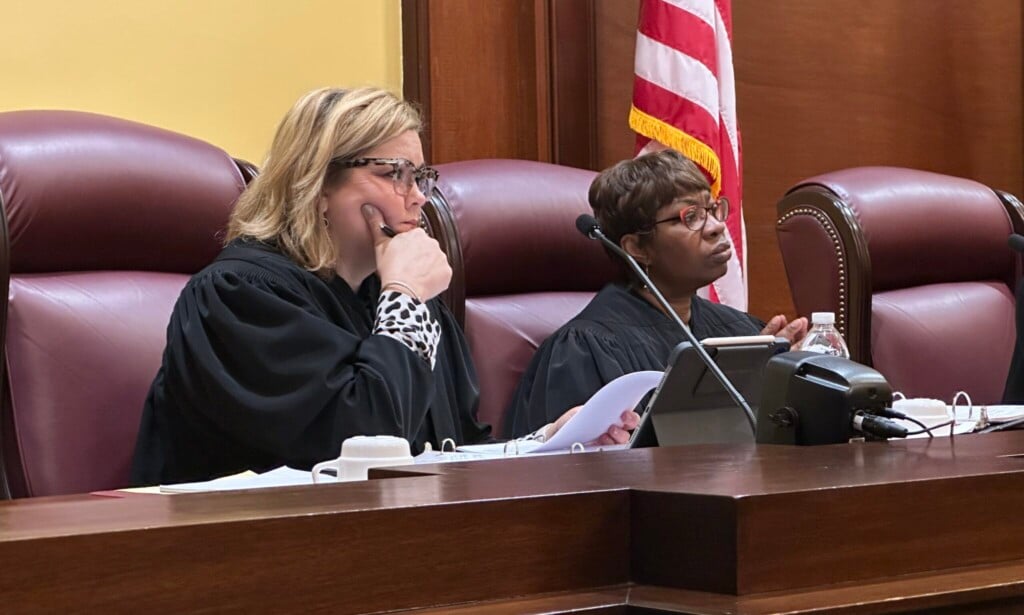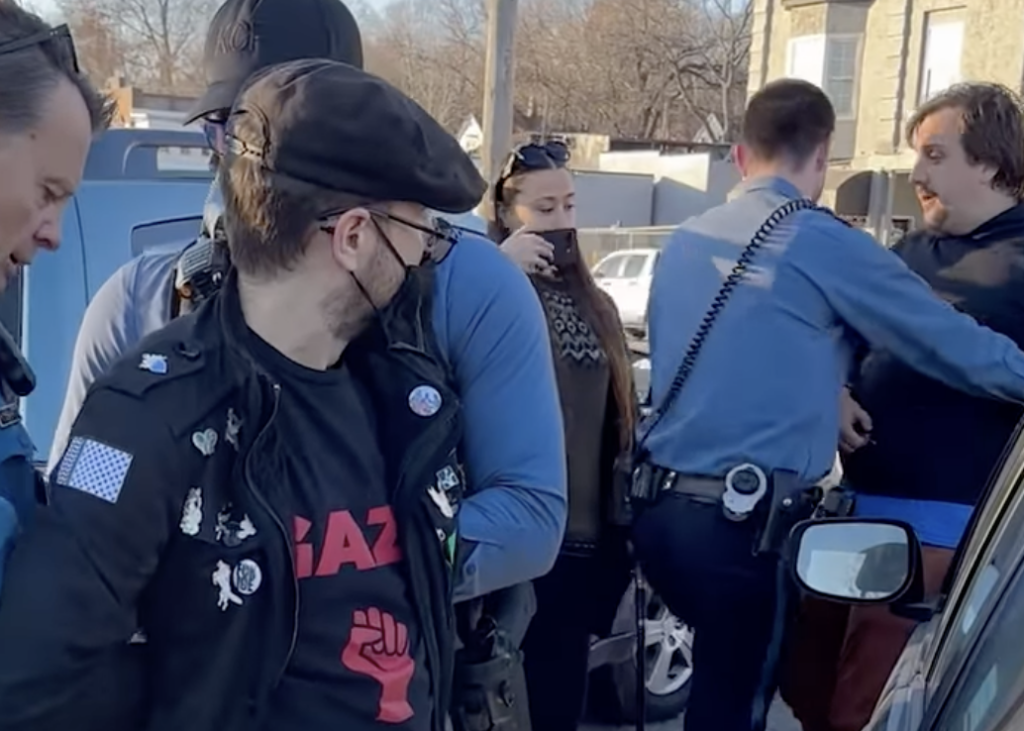Jackson County Legislature fails to pass ordinance banning conversion therapy

The Jackson County Legislature holds a vote to ban conversion therapy March 20. // Photo by Sarah Moore
Today, Jackson County Legislature was set—and expected—to pass an ordinance banning the practice of conversion therapy. After some procedural delays, a five-to-one vote with three abstentions failed to cross the threshold of six required votes to adopt the ban. In a moment that would have seen Jackson become the first county in Missouri to ban a procedure widely perceived to be cruel and outdated, what went wrong?
Ordinance 5711 was drafted and reworked for 73 days in the Diversity, Equity, and Inclusion committee, and was first brought to their attention when they received a letter from the Kansas City LGBTQ Commission calling on the Jackson County government to ban this outdated and harmful practice.
To begin the discussion about the ordinance, Sean Smith (6th district) objected to the DEI committee’s recommendation to adopt the ordinance by suggesting the addition of three amendments, focused on removing language Smith found confusing—including the use of the phrase “sexual preference” because he felt it expressed “opinion” language which he felt had no place in government documents
This amendment was argued against by Jeanie Lauer (5th district) and passionately opposed by Jalen Anderson (1st district At-large)
Lauer even drew a laugh from the crowd and other legislators when she pointed out that, contrary to what Smith requested, removing language from documents is often how they become more vague and difficult to understand. Since Smith had difficulty discussing the difference between “preference” and “orientation” during his explanation of the amendment, the point was made.
However, Smith also tried to make the point that the language needed to be taken out because it told the “scientific definition” of sexual orientation, and that by having this in the ordinance, the legislature was ignoring the fact that science is always changing. Anderson objected to this comment by saying that if a committee were to include scientific information about cancer research in a document, there wouldn’t be an argument to take out this language, even though the research could change.
The third amendment sought to add language that would delay the ordinance going into effect until professionals that could potentially be criminalized were educated about the conversion therapy ban. This was immediately questioned by Lauer and Abarca.
Lauer brought up that the county would be expected to pay for this education, but there was no budget set aside to provide classes or create pamphlets to share the information. Abarca also argued that this kind of education is not provided for most ordinances, and that word will spread through media and word-of-mouth amongst professionals.
All three of the amendments were voted down.
Manny Abarca IV (1st district) referred to this entire part of the process as a series of delay tactics, and the group moved on to Anderson speaking on the dire need for conversion therapy to be banned and criminalized in Jackson County by giving a detailed, personal story about his own experience with conversion therapy as a child. He and four other classmates were put through conversion therapy at their school in their early teens, and Anderson is the only one that did not take their life in response to this trauma.
Abarca added that it was imperative for Jackson County to lead by example, and become the first county in Missouri to ban conversion therapy.
However, when the motion to adopt the ordinance was objected by Venessa Husky (2nd district), a six-vote majority was required to pass the legislation. With only five ‘yes’ votes, the ordinance failed to pass.
Legislators Anderson, Marshall, Lauer, Abarca, and Franklin voted yes. Smith was the only one to vote no. Chair of the Legislature McGee and legislators Peyton and Huskey abstained.
When the legislature failed to pass the ordinance, tears were shed openly by legislators and members of the audience because this ordinance was personal for many people.
“There was no strength in the room to do the right thing,” Anderson said in the hall after the vote. “[The legislators that voted no or abstained] should all be ashamed of themselves, and they all stand with those that attack and harm children.”
This vote also came after Attorney General Andrew Bailey issued an emergency regulation upholding the Missouri law that prohibits gender transition intervention. He says this was necessary after seeing a recent increase in these “experimental” interventions.
This regulation once again harms the LGBTQ+ community and makes it harder for them to access self-affirming resources within the state.
It is unclear whether the KC LGBTQ Commission will attempt to employ the help of the DEI Committee again, or if it will find a different route to bring this ordinance back to life.




